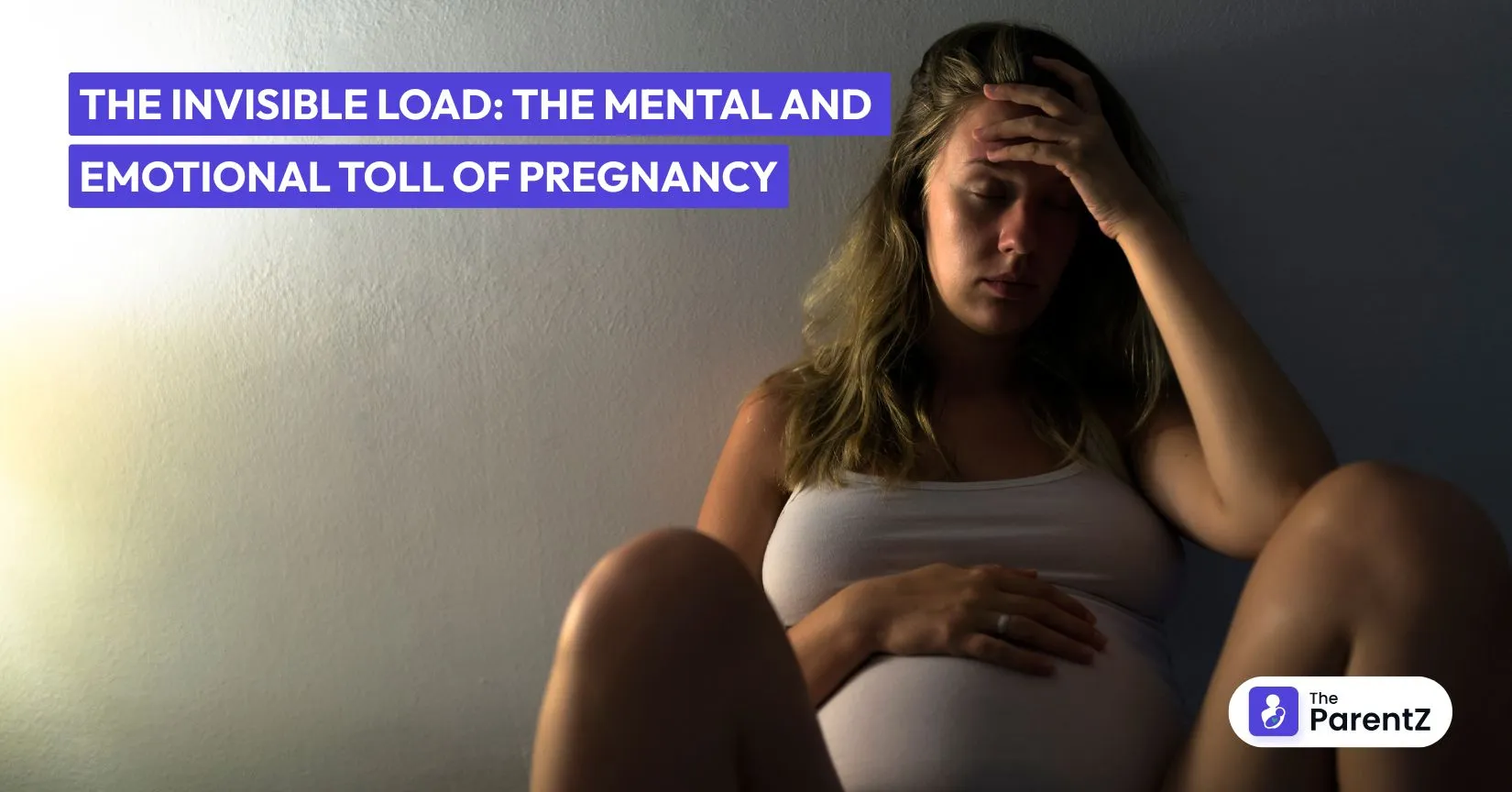If you're here, chances are you or someone you love is on the incredible journey of bringing new life into the world. Congratulations! While pregnancy brings so much joy and anticipation, there's an important conversation we need to have about what happens beneath the surface, beyond the baby showers and nursery decorating.
What Nobody Tells You About Pregnancy
Pregnancy comes with widely expected physical symptoms - morning sickness, backaches, and swollen ankles. But what often takes families by surprise is the overwhelming worry, the constant mental load, and the emotional rollercoaster that accompanies those nine months. Studies show that up to 70% to 80% of pregnant women experience significant emotional changes during pregnancy, yet these challenges often remain unspoken.
Growing a human is demanding work, not just physically, but mentally and emotionally too. This invisible load weighs on the entire family system, affecting the pregnant mother most directly, but also extending to partners and other children in many ways.
For the Mom-to-Be
Let's start with the expecting mother. Her body undergoes dramatic changes, but her mind is working overtime too. She might be experiencing:
- Constant worry: Is the baby healthy? Am I eating the right foods? Should I really be feeling this way?
- Decision fatigue: From choosing healthcare providers to baby names to breast pump models—the decisions never end.
- Identity shifts: Questions about who she'll be as a mother, how pregnancy will change her career, and relationships.
- Hormonal mood swings: Crying over commercials one minute, laughing the next.
- Physical discomfort affecting mental health: It's hard to feel positive after months of disrupted sleep and physical changes.
Many mothers report feeling invisible beneath their growing belly. "Everyone asked about the baby, but nobody asked how I was doing—the actual person carrying this child."
For the Partner
Partners face their own unique challenges during pregnancy:
- Helplessness: Watching someone they love go through physical and emotional changes they can't fix.
- Their own anxieties: About becoming a parent, financial pressures, and supporting their partner properly.
- Being overlooked: Everyone focuses on mom and baby, leaving partners feeling secondary.
- Walking on eggshells: Never quite knowing how to respond to mood swings or complaints.
- Pressure to be the rock: Feeling like they can't share their own worries.
An expectant dad shared, "I was terrified, but felt like I couldn't say so. My job was supposed to be supporting her, not adding to her stress."
For the Other Kids
If there are already children in the family, they're dealing with:
- Confusion: Why is Mom so tired all the time?
- Fear of change: What will happen when the baby comes?
- Less attention: Mom and Dad are busy preparing for the new baby.
- Mixed emotions: Excitement about having a sibling, but jealousy too.
A seven-year-old shared, "I was happy about the baby, but scared Mom might love the new baby more than me."
The Reality Check: This Is Normal
Here's the most important thing to know: these feelings are completely normal. Every pregnant woman and her family go through some version of this emotional journey. You're not failing if you're not glowing with joy every moment.
How to Navigate These Choppy Waters
For Moms:
- Drop the guilt: Pregnant women are allowed to feel however they feel about pregnancy.
- Speak up: Telling partners, doctors, and friends about struggles makes them visible.
- Lower expectations: The house doesn't need to be perfect. No one needs to be perfect.
- Find a community: Connecting with other pregnant women or new moms who understand helps immensely.
- Schedule mental health breaks: Even 10 minutes of quiet can reset emotions.
For Partners:
- Listen without fixing: Sometimes she just needs to vent without solutions.
- Step up practically: Taking over chores without being asked shows true support.
- Educate yourself: Reading the books, attending appointments, and understanding the process matters a lot.
- Find support: Talking to other partners who've been there provides perspective.
- Practice patience: Her body and hormones are doing extraordinary things right now.
For Helping Kids Cope:
- Keep them involved: Letting them help prepare for the baby in age-appropriate ways builds excitement.
- Maintain routines: Kids need stability when change is coming.
- Special time: Scheduling one-on-one time with each child reassures them of their importance.
- Honest conversations: Explaining in simple terms what's happening helps children understand why mom might be tired or emotional.
- Books about new siblings: There are wonderful resources to help kids process their feelings.
When the Bad Days Hit
Because they will hit. And that's okay. Here's what helps:
- Name it: Simply saying "This is a rough pregnancy day" can be liberating.
- Reach out: Texting a friend, calling family, or telling a partner breaks isolation.
- Simplify: Determining what absolutely must get done today and what can wait.
- Rest: Sometimes the best solution is simply to sleep.
- Professional help: If the dark days outnumber the good ones, talking to a healthcare provider about prenatal depression or anxiety is essential.
Conclusion
For all those on this journey, remember: no one is alone in this experience. Millions of families have walked this path before, feeling exactly these same emotions. The worries, the mood swings, the overwhelming responsibility—they're all part of the beautiful complexity of bringing new life into the world.
Be gentle with each other. Ask for help when needed. Even on the hardest days, remember that this important work involves not just growing a baby, but growing as individuals and as a family.
The invisible load of pregnancy? It's preparing everyone for parenthood in ways that aren't immediately obvious. And every expectant family is stronger than they realize.
Wishing strength and compassion to all those on this transformative journey.





Be the first one to comment on this story.